The Universitat Jaume I (Spain) has launched a Senior Virtual Campus for continuing education programs for those over 55.
More than 91% of the world’s student population (1,575,270,054 students) is affected by the temporary closure of schools and universities due to the COVID-19 pandemic, according to UNESCO. In response to this contingency, our educational institutions have been tasked with implementing emergency plans for remote teaching so that students do not entirely miss the school year. From preschool to graduate school, teachers all over the world have moved their classrooms to the virtual environment.
While for some, the switch to the remote classroom-office will be less disruptive because much of their personal lives and work revolve around the use of mobile devices and the internet, for others, the shift towards emergency remote teaching is proving deeply challenging. I am referring to the generations that grew up with analog technologies before the emergence of the internet and digital technologies, i.e., the Baby Boomers (born 1946-1964) and the Silent Generation (born 1923-1945).
Digital Divide: Social Exclusion of Older Adults
As our lives move almost entirely online, new generations not only use digital apps for school and work, they also use them (even before the pandemic) to buy groceries, order delivery, exercise, or even make homemade face masks with internet tutorials. However, activities as simple and basic as shopping have become a real nightmare for the people most vulnerable to the COVID-19 pandemic: seniors.
In some countries such as Spain, people over-65s have support networks to do these types of activities without leaving home (during select hours, via phone orders or through networks of volunteers and neighbours who do it for them). In other countries such as Mexico, although some supermarkets have online ordering and delivery, these apply only to certain areas (usually an upper-class neighborhood). I know this firsthand because I recently guided my aunt to buy, for the first time, her groceries online. That’s where I realized that some things we commonly do these days, like online shopping, are tremendously difficult for others to do. The closure of stores and the security measures of the quarantine can make those who have never made online purchases feel marginalized due to this digital divide.
Another fundamental part of life, socialization, has also been disrupted by the contingency measures of this pandemic. To continue their social life, teenagers and young adults are holding birthday parties via Houseparty, vermouth-time meetings in Zoom or Skype, and others even use Netflix Party to watch movies and series at the same time. Although these new virtual activities are not exclusive to younger ones, they are more natural for those who are used to the technology that allows them to do it. In that sense, what about the older adult population? How do they give continuity to their social life, which is so necessary, above all, for the older adults who live alone?
Going out, walking on the street, going to the market, to a coffee shop, or to the park to sunbathe on a bench is no longer possible due to the emergency measures. Neither can people go to book clubs or Zumba classes. These and other activities that promote active aging have had to be suspended until further notice. These activities also include continuing education programs and universities for the elderly.
There are numerous continuing education projects globally to keep the older adult active and in better physical and mental health. In the Age Friendly University Network, one can find a list of universities in America, Europe, and Asia that are inclusive and offer educational programs for older adults. Also, in Spain and Latin America are offered special programs designed for seniors that promote active aging through an offering of courses ranging from Art History, Film, Political and Social Geography, Philosophy and Literature, to Home Economics, Health Education, and Hiking. But with the closure of universities and educational centers around the world, these programs have also had to suspend their face-to-face activities and one of the pillars of educational programs for older adults, namely, active life and socialization.
“Older students should not be given the leftovers. They should be given the best because they deserve the best.”
Photos: Universitat per a Majors / courtesy of the Universitat Jaume I.
Nevertheless, some of these programs have enabled support networks for senior students during the quarantine period. These support networks have ranged from email support to the enabling of digital infrastructures that continue instruction online. A prominent case is that of the Universitat per a Majors (University for Seniors) of the Universitat Jaume I (UJI), located in Castellón de la Plana, Spain.
A virtual campus for older adults
In the Universitat Jaume I, led by Eva Alcón, the same emergency remote teaching efforts that have been launched for undergraduate students are being conducted for the students over the age of 55. Elsa González, Academic Director of the University for Seniors, comments that the former director of the senior program always used to say that “Older students should not be given the leftovers. They should be given the best because they deserve the best.” And in honor of this philosophy, the university has launched the Virtual Campus for Seniors to continue the courses for older adults offered by this university.
“UJI has the will and commitment to maintain lifelong learning, boost the use of technology as an ally for teaching, and avoid the digital gap or age discrimination in access to learning.”
The Universitat per a Majors has a unique educational offering for older adults consisting of an undergraduate degree for seniors, a postgraduate degree for seniors, and specialized courses for older adults in the attached offices in small towns. In all these courses, virtual spaces been enabled so that the students can continue the school year.
Senior Virtual Campus
When the state of alarm was issued in Spain on March 14, UJI was one of the first universities to warn its students, especially the elderly, not go to campus, says Elsa González. “We knew (older adults) were going to need more accompaniment than ever,” she explained. Given that these programs do not have an evaluation system like those of university undergraduate and graduate programs, accompaniment to the elderly becomes one of the critical points to cover during this health crisis. To provide this accompaniment, the director for senior programs explains that the faculty team and the student representatives immediately initiated a series of virtual meetings to decide and agree upon the details of the steps towards virtual teaching and the vital needs to be attended during the weeks of shelter-in-place.
The Rector of the university, Eva Alcón, emphasizes that the University for Seniors has faced the migration from face-to-face teaching to the Virtual Senior Campus “with the same permanent spirit of improvement and with the adaptability that has characterized the university throughout its trajectory.” Of the nearly 1100 older adults who are part of the 2019-2020 academic year, an average of 63% of them remains active in the Virtual Campus (83% of the undergraduate students, 62% of the graduate students, and 43% of the students at the attached offices).
“Older adults are eager to create.”
The online teaching is being developed through the UJI Virtual Classroom, where students have access to the 21 courses actively taught during this period of emergency remote teaching. Also, they have access to a YouTube channel with tutorials and guides created to promote digital literacy for older students. On this channel, one can find videos that explain how to “copy and paste” how to make purchases online and an introduction to virtual classrooms. There are also other useful resources offered for these days of confinement.
However, it is not hard to interest older adults. “They are not passive; they are active,” says Elsa González. “The older adults are eager to create.” One example of their initiative is the radio show Senior Voice, which has continued during the quarantine, in which students who have prepared the weekly radio program now do so remotely, each one from their home.
“We knew that (older adults) were going to need more accompaniment than ever before.”
“The Senior Virtual Campus has technological and also social components,” notes Elsa González. “Most of the learning in a Virtual Classroom depends on the student himself, who, therefore, assumes an active and participatory role. It is both a very dynamic and gratifying learning. During this period, it is intended that the students are deeply involved, learning also from each other, seeking different resources, and everyone expressing their opinion.”
This social component is also carried out in the Virtual Classroom, which reproduces the characteristics of the face-to-face classroom. Elsa says that the interaction is usually different in the online courses where no one is known in person. However, in the case of the University for Seniors, it is different because most students have been together three years or more. “The dynamics are not the same,” she says. Also, they have WhatsApp groups by subject matter in which they can give feedback to each other about the courses and continue with the social accompaniment, albeit in a virtual way.
“We have the moral duty to make our society cohesive. The seniors program empowers them; it even makes them contemporaneous.”
The launch of the Senior Virtual Campus, explains Rector Eva Alcón, is a further example of the will of Universitat Jaume I “to maintain lifelong training, promote the use of technology as an ally of teaching, and avoid the digital gap or age discrimination in access to learning.” Also, the Rector recognized and applauded the effort made by the entire team to “adapt in record time the teaching offering of the University for Seniors in the virtual space and continue promoting the acquisition of digital competences among the student body.”
The importance of continuing these programs, even in the face of a global health crisis, is fundamental to supporting the older adult population that is growing globally at an accelerated pace. Due to increased life expectancy and decreased fertility rates, the proportion of people over 60 is rising faster than any other age group. According to data from the World Health Organization (WHO), between the years 2000 and 2050, the number of people aged 80 and over will increase by almost four times to 395 million. Also, the risk of developing dementia increases with age. The WHO estimates that 25% to 30% of people aged 85 and over suffer some degree of cognitive impairment.
Considering this, the programs for seniors that promote active aging will be more critical than ever in the coming years. Initiatives such as universities for seniors contribute to active aging, well-being, and the inclusion of older adults within society. “UJI has a social responsibility within its environment,” Elsa González emphasizes. “We have the moral duty to make our society cohesive. The seniors program empowers them; it even makes them contemporaneous.”
This article from Observatory of the Institute for the Future of Education may be shared under the terms of the license CC BY-NC-SA 4.0 
)
)

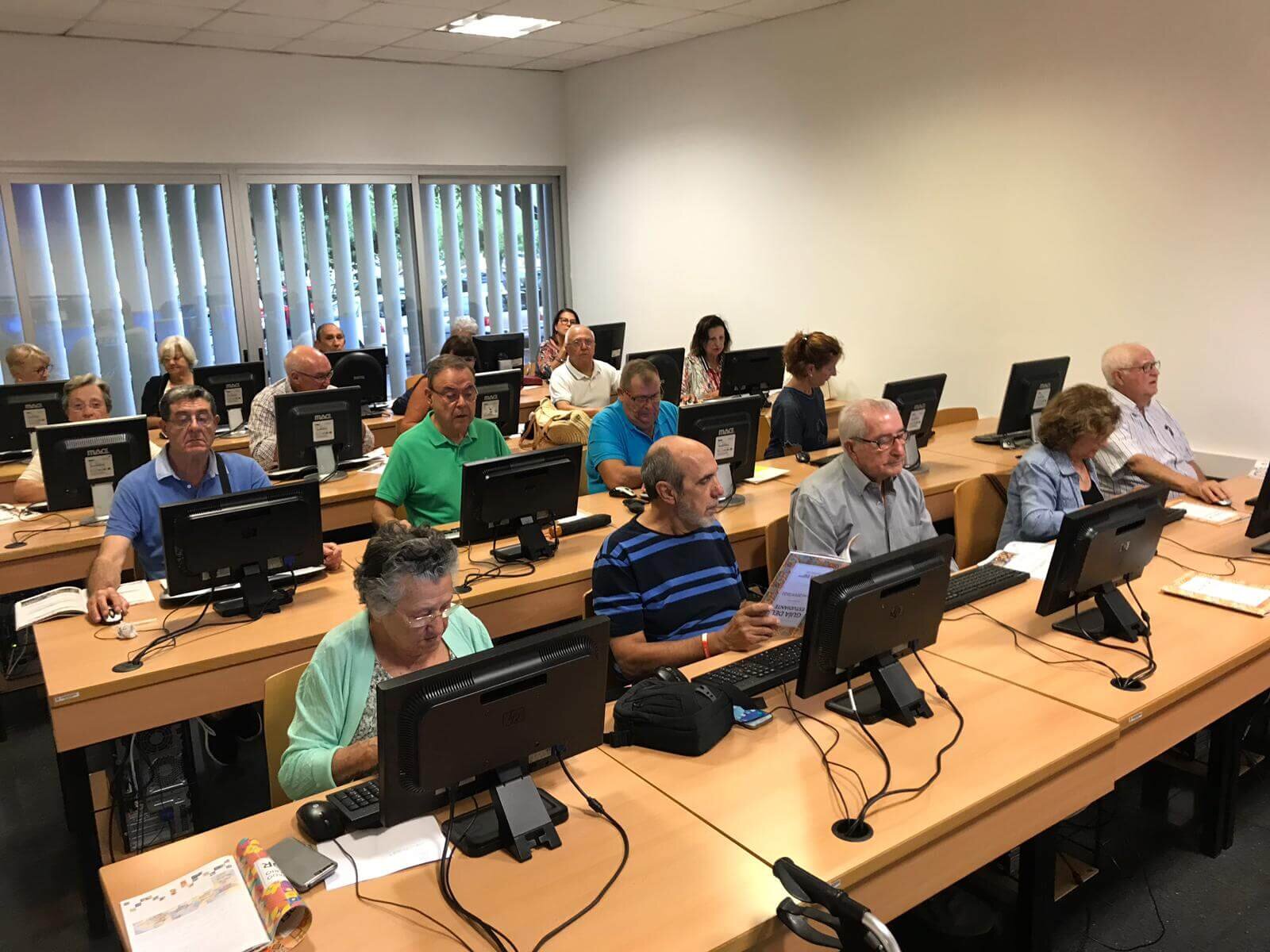
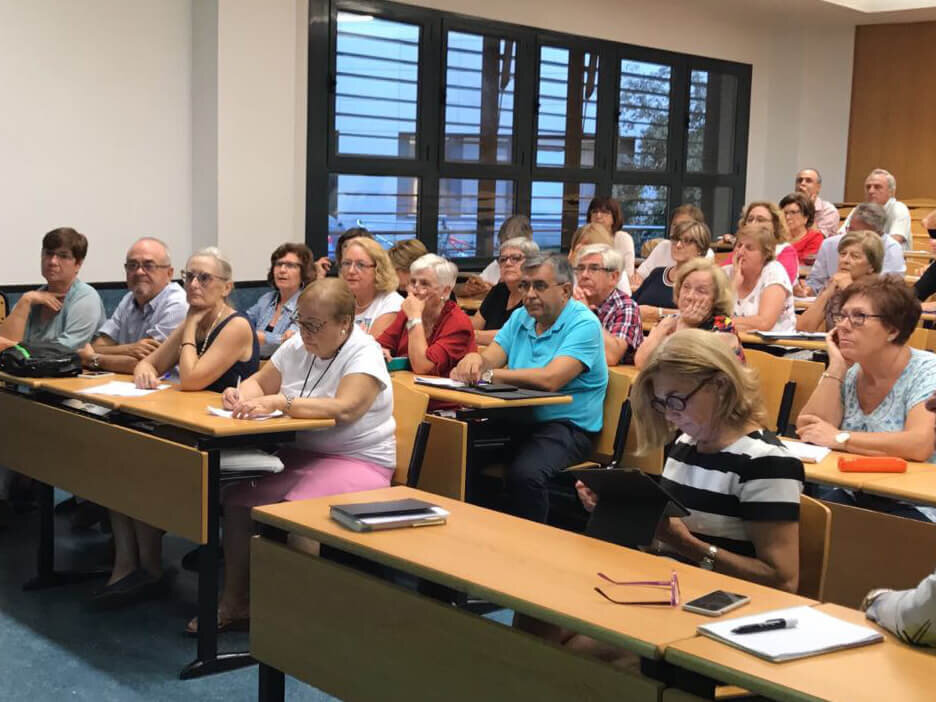
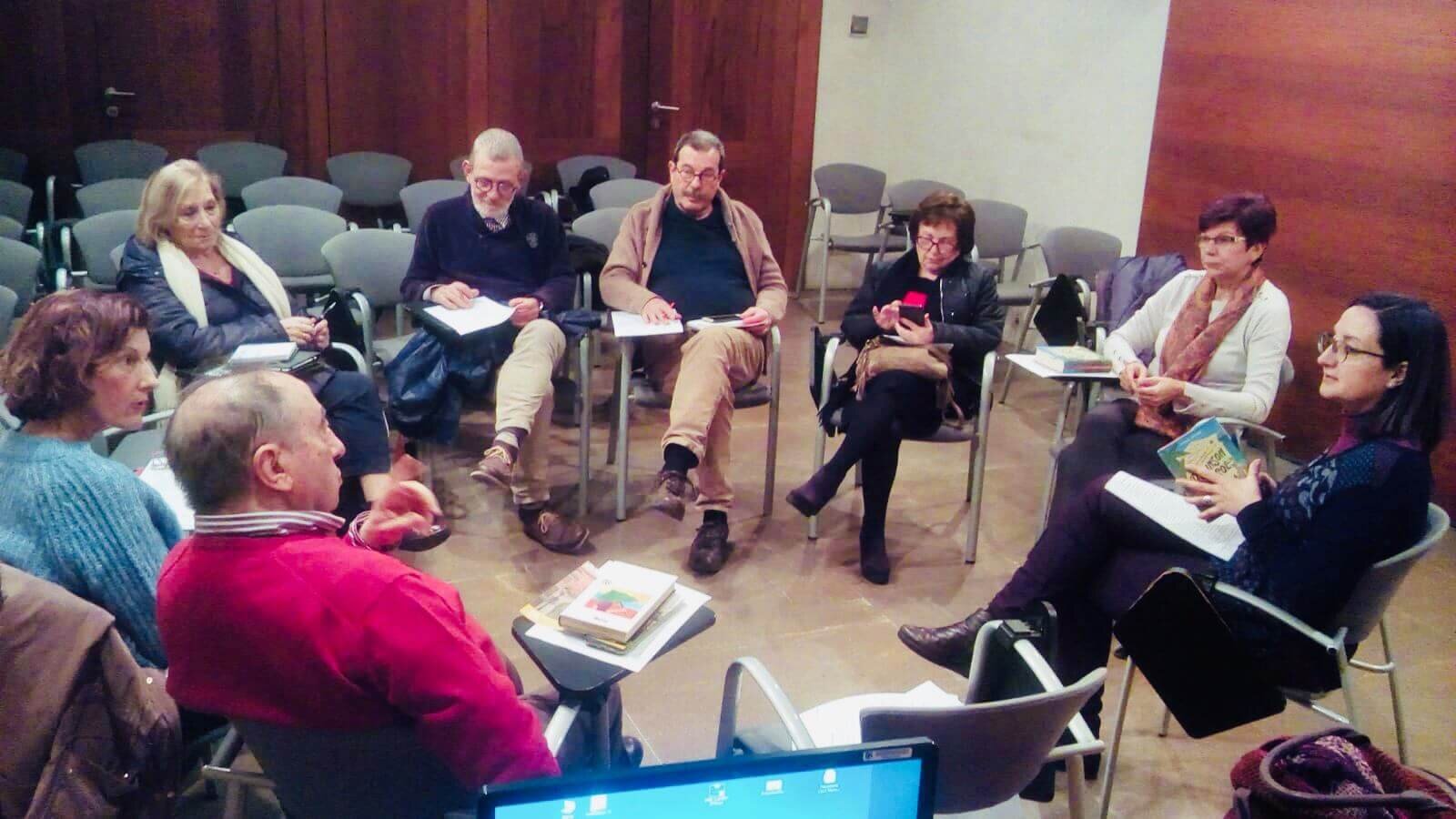
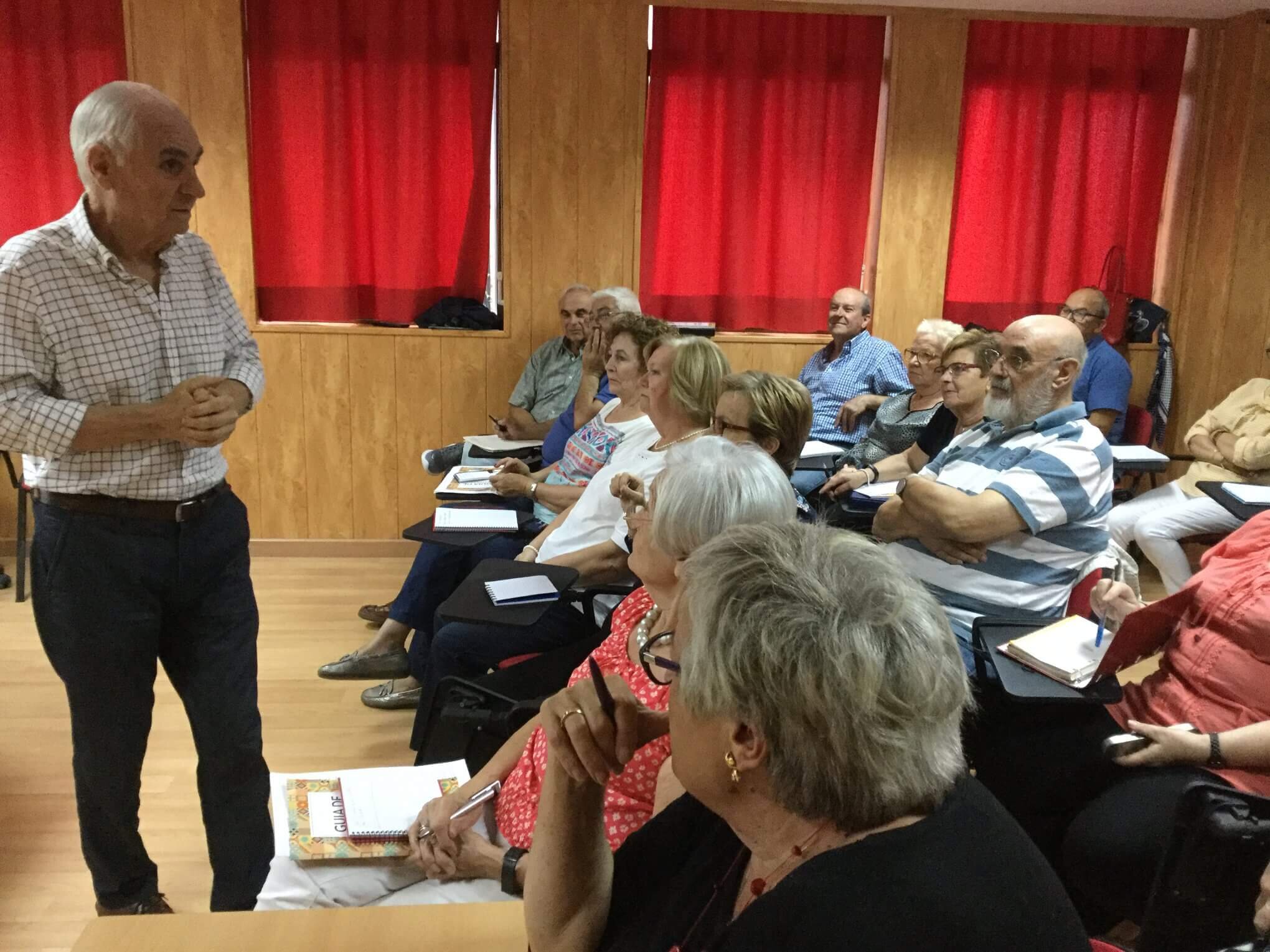
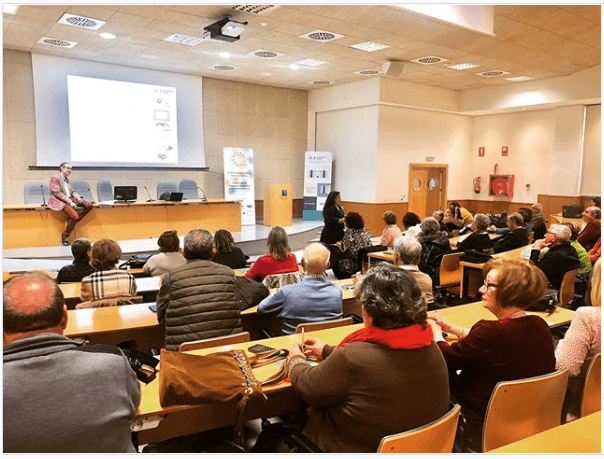
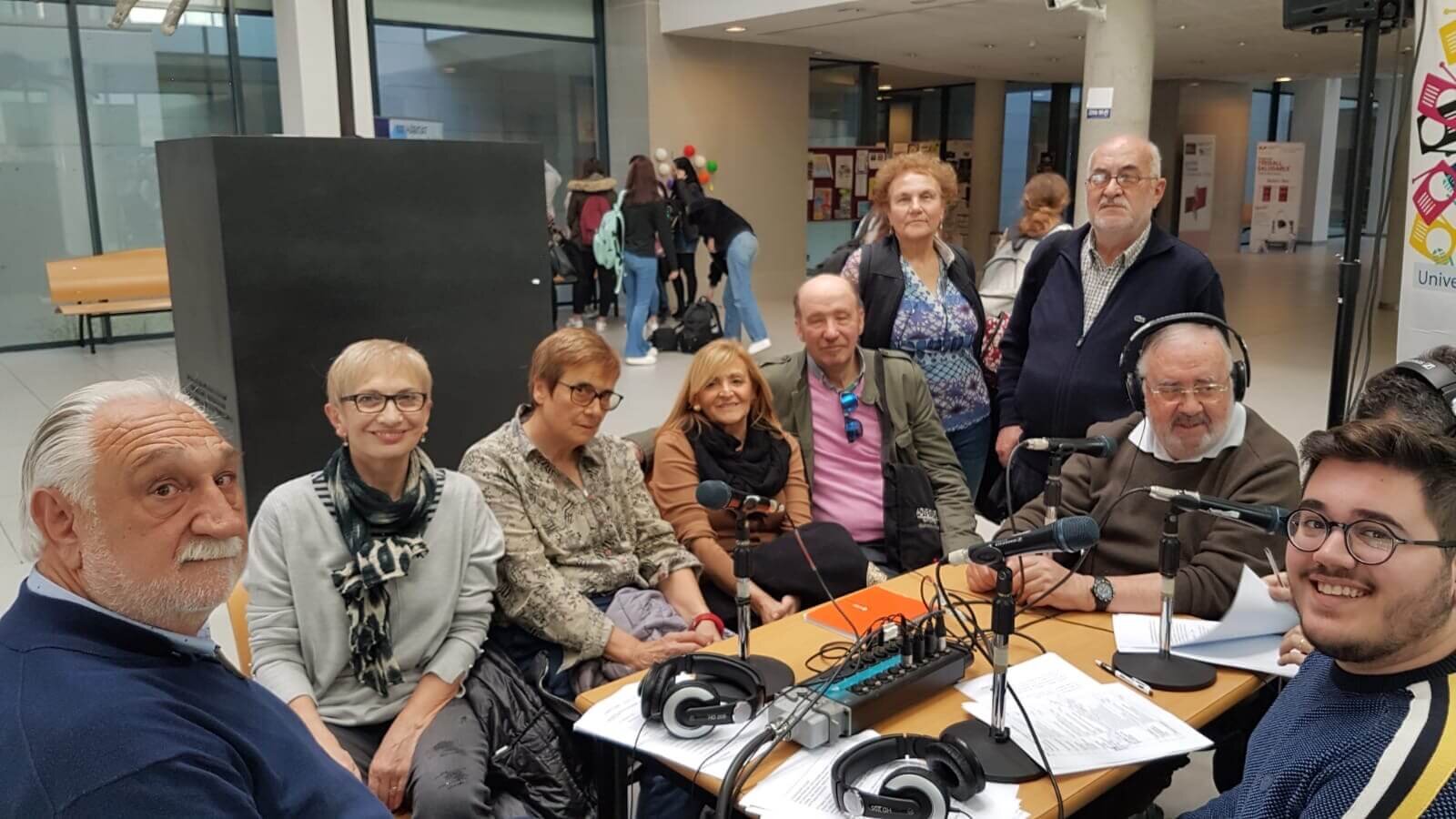

)